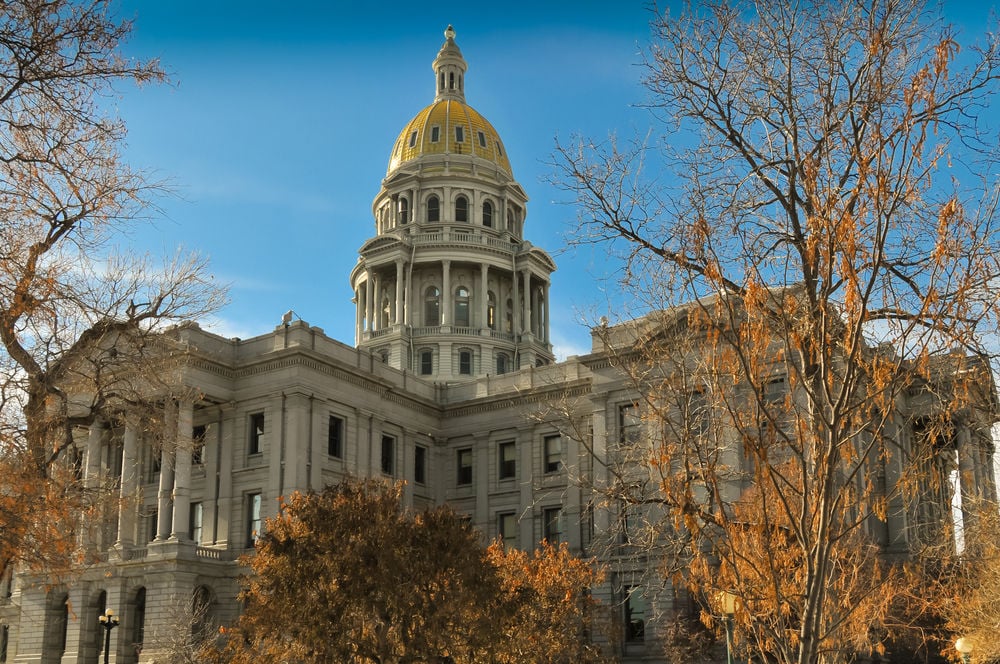egal battles continue over Taxpayer Bill of Rights, hospital fees, transportation taxes

Called the Taxpayer Bill of Rights, or TABOR, it took effect Dec. 31, 1992, and was designed to serve as another check against the growth of government. It requires that any increase in overall revenue from taxes not exceed the rates of inflation and population growth.
The TABOR Foundation, which was instrumental in advancing the amendment, maintains that it has been a successful measure.
Others maintain it interferes with advancing critical public spending initiatives. Sam Mamet, the executive director of the Colorado Municipal League, opposes TABOR. Mamet argued on the 25th anniversary of TABOR that “iIt is one of the most seriously damaging things the voters of the state have done to themselves in the last 25 years, in my humble opinion.”
Since its inception 26 years ago, many attempts have been made to amend, circumvent and litigate TABOR; the foundation counts at least 80 cases between 1993 and 2017.
Pfiffner said a perfect example of this is the 2015 lawsuit it filed, TABOR Foundation, et al. v. Colorado Department of Health Care Policy & Financing, et al. regarding Colorado’s “hospital provider fee,” which it argues is an unconstitutional tax.
The lawsuit is still pending in Denver County District Court but made headlines recently because the foundation’s new legal counsel, the Cause of Action Institute, filed a motion seeking a summary judgment. It asked the court to rule “that, as a matter of law, Colorado violated TABOR and other constitutional provisions when it levied $4.5 billion in hospital taxes without a vote of the people.”
The foundation argues that the state has violated TABOR “by using a hospital provider tax to artificially increase costs and then collect higher reimbursements from the federal government under Medicaid.”
The practice dates to 2009, when the Affordable Care Act was about to pass Congress and the Colorado State Legislature enacted a hospital provider tax in an effort to receive more federal Medicaid fund-matching dollars. The hospital provider tax artificially increased the hospitals’ costs, which when reported to the federal government, resulted in the state receiving more money for the inflated, not actual cost, of healthcare provided, the foundation argues.
About a decade later, when the state faced a budget crunch and tax revenue was expected to exceed the TABOR cap, Gov. John Hickenlooper worked with the Legislature to pass SB 17-267. The bill created the Colorado Healthcare Affordability and Sustainability Enterprise (CHASE), which converted the hospital provider tax from the Department of Health Care Policy and Financing to a newly created enterprise. This, the foundation argues, violated the Colorado constitution’s single-subject requirement and “failed to comply with the state excess revenue cap, which limits the amount of revenue the state can keep and spend.”
“The Hospital Provider program was built on a lie, then made much worse,” Pfiffner said. “The people should get a final vote on tax increases and new government debt, but that was taken from them in a dishonest power grab by elected officials.”
In 2015, the TABOR Foundation sued CHASE and the Colorado Department of Health Care Policy and Financing.
“For the past eight years the state of Colorado has been taxing hospitals by hundreds of millions of dollars to fleece the federal government without the required TABOR vote,” said foundation attorney James Valvo, a senior policy advisor at the Cause of Action Institute. “The TABOR Foundation is rightly pushing back on the sweetheart deal that leaves taxpayers stuck with the bill.”
The fees generate close to $1 billion toward the $8 billion Colorado Medicaid program, Linda Gorman of the Independence Institute said. Gorman has been deposed on issues related to the lawsuit.
“The General Assembly went ahead and made the hospital taxing operation a Taxpayer’s Bill of Rights exempt enterprise last session,” Gorman told Watchdog.org. “If the state of Colorado wins the case, the Taxpayer’s Bill of Rights protections would be significantly reduced.
TABOR defenders note that the tactics local and state government officials use to circumvent it include mortgaging state buildings, eliminating tax breaks and renaming tax increases as “fees” administered by “enterprises,” which are actually state-run entities whose revenues are not included in TABOR’s revenue cap.
TABOR defenders received two setbacks earlier this year. In April, the Colorado Supreme Court upheld the decisions of two lower courts against another lawsuit the foundation filed against the Regional Transportation District. The foundation argued that RTA violated TABOR by adding sales taxes to some items to benefit public transportation and cultural groups in the metropolitan Denver area without voter approval. The court ruled that the taxation was constitutional.
Yet, under the Colorado Constitution, any “tax policy change directly causing a net tax revenue gain” requires voter approval.
“They [the courts] seem to be saying that if you haven’t taxed something before and put a new tax on it, that it’s not a new tax,” Pfiffner said. “We disagree.”
Also this year, the U.S. Supreme Court sent back a 2011 case to the 10th U.S. Circuit Court of Appeals in which state Sen. Andy Kerr, D-Lakewood, and House Speaker Dickey Lee Hullinghorst, D-Gunbarrel, led 33 plaintiffs against TABOR. They allege that the amendment is unconstitutional because it took power from legislators who otherwise would be able to raise taxes and spend taxpayer money without taxpayer approval. No action has yet been taken on the case.
Leave a Reply